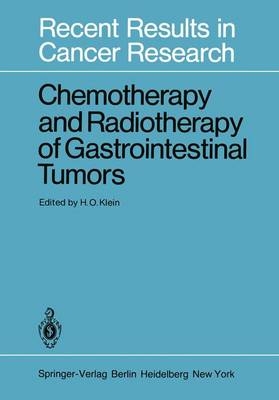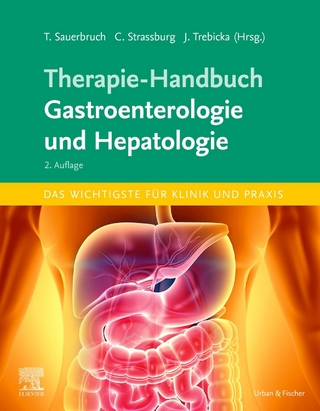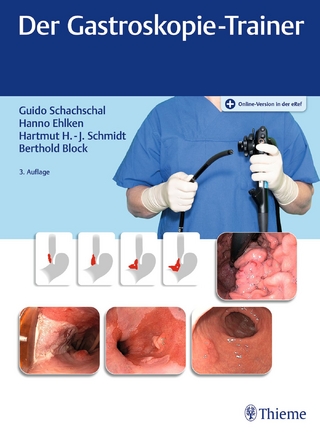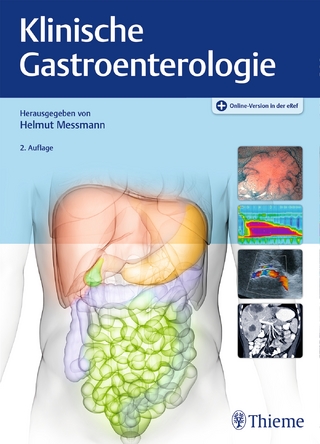
Chemotherapy and Radiotherapy of Gastrointestinal Tumors
Springer-Verlag Berlin and Heidelberg GmbH & Co. K
978-3-540-10938-9 (ISBN)
- Titel ist leider vergriffen;
keine Neuauflage - Artikel merken
Attempts to influence survival of patients with colorectal cancer (CRC) by adjuvant chemotherapy are limited by the variability of survival in different prognostic groups [4] and the paucity of drugs that have shown activity in the advanced disease [10]. Of the few drugs which are active in the advanced disease, only 5-fluorouracil (5-FU) and razoxane "+-1,2-bis(3,4-dioxopiperazin-1-yl)propane) are suitable for long-term adjuvant treatment [2, 9]. 5-FU has been widely and intensively studied as adjuvant chemotherapy in CRC [7], but there is no unanimity that it has even the marginal influence on survival that has been claimed [3, 10]. Razoxane has not previously been tested for adjuvant or maintenance treatment in CRC. It has however a number of biological activities which might be thought useful in the treatment of residual or minimal tumours [1] and which might therefore make it useful as an adjuvant. Thus it specifically prevents tumour dissemination and metastases in some tumours and normalizes the neovasculature which the tumours induce [6, 8, 11].
The drug is not cytotoxic in the usual sense, does not affect non-dividing cells, and only blocks cell division during a brief period of the cell cycle in late G and/or early mitosis [12]. It does so non-selectively and most cells capable of 2 division examined so far have been affected by the drug. Even affected cells however are not destroyed immediately, but may increase in size and become multinucleate [5].
The Importance of Lectin Binding Sites and Carcinoembryonic Antigen with Regard to Normal, Hyperplastic, Adenomatous, and Carcinomatous Colonic Mucosa.- Why Do Colon Tumours Respond Poorly to Chemotherapeutic Agents?.- Prospective and Controlled Studies on Multidisciplinary Treatment in Gastrointestinal Cancer.- Recent Results of Clinical Therapeutic Trials for Gastrointestinal Malignancies Conducted in the United States.- Effectiveness of Postoperative Adjuvant Therapy with Cytotoxic Chemotherapy (Cytosine Arabinoside, Mitomycin C, 5-Fluorouracil) or Immunotherapy (Neuraminidase-Modified Allogeneic Cells) in the Prevention of Recurrence of Duke's B and C Colon Cancer.- A Controlled Prospective Trial of Adjuvant Razoxane in Resectable Colorectal Cancer.- Methyl-CCNU and Ftorafur in Treatment of Rectosigmoidal Tumors and Ftorafur Capsules in Treatment of Colorectal Tumors.- High-Dose Therapy with Ftorafur in Gastrointestinal Cancer.- Comparison of Ftorafur with 5-Fluorouracil in Combination Chemotherapy of Advanced Gastrointestinal Carcinoma.- Efficacy of Dacarbazine Imidazole Carboxamide and Mitomycin C Combination Therapy in Patients with Adenocarcinoma of the Colon Refractory to 5-Fluorouracil Therapy.- 5-Fluorouracil: A Comparative Pharmacokinetic Study and Preliminary Results of a Clinical Phase I Study.
| Reihe/Serie | Recent Results in Cancer Research ; 79 |
|---|---|
| Zusatzinfo | 7 black & white illustrations, 59 black & white tables, biography |
| Verlagsort | Berlin |
| Sprache | englisch |
| Gewicht | 400 g |
| Themenwelt | Medizinische Fachgebiete ► Innere Medizin ► Gastroenterologie |
| Medizin / Pharmazie ► Medizinische Fachgebiete ► Onkologie | |
| Medizin / Pharmazie ► Medizinische Fachgebiete ► Radiologie / Bildgebende Verfahren | |
| ISBN-10 | 3-540-10938-2 / 3540109382 |
| ISBN-13 | 978-3-540-10938-9 / 9783540109389 |
| Zustand | Neuware |
| Haben Sie eine Frage zum Produkt? |
aus dem Bereich


